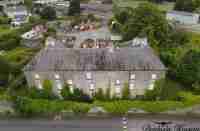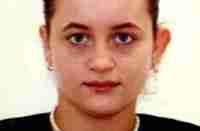Family thanks the public for ongoing support
In September of this year, a jury at Carrick-on-Shannon Coroner’s Court returned an open verdict in the case of Liam Farrell, an 87-year-old man from Rooskey, County Leitrim, who died almost five years ago. The jury, comprising five women and three men, expressed their deepest sympathies to Mr Farrell’s family and recommended that a forensic pathologist be present at designated crime scenes in the future.
Brendan Farrell, speaking on behalf of the family, has made a renewed and emotional plea for anyone with information, no matter how insignificant they may think it is, regarding his father’s death to come forward.
Speaking following the verdict in September, the family’s solicitor, Frank Buttimer, clarified that an open verdict reflects the jury’s inability to determine the precise circumstances of Mr Farrell’s death.
Mr Farrell, who was living alone at the time of his death, was found on Sunday, 13 January 2020, by his daughter, lying on his back near the back door of his home. His body was covered in blood, his shoes and socks were missing, his watch was broken, and he had bruising on his left eye and feet. Despite resuscitation attempts, Mr Farrell could not be revived. Gardaí declared the site a crime scene, and his body was taken to Sligo University Hospital for a post-mortem examination.
The findings
Consultant pathologist Professor Paul Hartel conducted the autopsy and concluded that Mr Farrell died from a heart attack linked to severe coronary heart disease. However, Professor Hartel later revealed he was not informed that Mr Farrell had been discovered under suspicious circumstances or that a crime scene had been established. He stated that had he been made aware, he would have declined to perform the autopsy, as such cases require a forensic pathologist.
Regarding the injuries Mr Farrell sustained, Professor Hartel noted it was not his place to speculate on how they were inflicted and he refrained from conjecture in his report. He emphasised that any instance involving suspicious circumstances and the potential need for a Garda investigation should fall under the purview of the State Pathologist’s Office.
Following a Garda request, Chief State Pathologist Dr Linda Mulligan reviewed Professor Hartel’s report. With access to additional images and information unavailable during the original autopsy, Dr Mulligan confirmed that the primary medical cause of death was a heart attack caused by severe coronary heart disease. She outlined two possible scenarios: Mr Farrell either suffered a heart attack, fell, and sustained injuries in the process, or another party was involved, triggering a stress-induced heart attack. According to Dr Mulligan, the injuries were consistent with both possibilities.
Dr Mulligan stressed, “You can’t say for certain,” but acknowledged that the involvement of another person could not be ruled out entirely.
Forensic review
The Farrell family sought a second opinion from Professor Jack Crane, former State Pathologist for Northern Ireland.
Professor Crane criticised the initial autopsy as inadequate and suggested Mr Farrell’s injuries were consistent with an assault. He posited that Mr Farrell had likely been confronted by an intruder outside his home, struck in the face, and attempted to make his way back inside. He described the eye injury as typical of blunt force trauma.
All three experts agreed that Mr Farrell suffered a heart attack several hours before his death. Professor Crane explained that while the injuries were not life-threatening on their own, they likely exacerbated an already fragile cardiac condition.
Evidence given at inquest
On the night of 12 January 2020, Mr Farrell had followed his usual routine, visiting two pubs in his local village of Rooskey. Witnesses described him as a pleasant, kind man who was in good spirits when he left to walk home.
Peter Reynolds, proprietor of Reynolds Pub, said Mr Farrell was “in good form” and called him “a very nice, pleasant and honest man”.
Anne Vaughan, of The Weir Lodge public house, noted that an unfamiliar man in a dark suit had been speaking to Mr Farrell that night. She recalled the man as small and stocky and suspected he might have followed Mr Farrell when he left the pub.
Local taxi driver Noel Mahon was the last known person to see Mr Farrell alive, observing him walking home along the correct side of the road. Mahon noted nothing unusual about Mr Farrell’s behaviour or routine that evening.
More than 30 depositions were heard during the inquest. The jury returned an open verdict, reflecting the unresolved nature of the case, and commended Mr Farrell’s neighbours for their support. They also extended their sympathies to the family.
Gardaí conducted a thorough investigation into the circumstances of Mr Farrell’s death and submitted a file to the Director of Public Prosecutions (DPP). However, no prosecution was directed. Additional information submitted to the DPP’s office did not alter this decision.
Following the verdict of the Coroner’s Court, a Garda spokesperson stated that they would “continue to engage with the family of Mr Liam Farrell”.
Last Friday, December 13th, a senior investigating officer within An Garda Síochana who was appointed by the Garda Commissioner to conduct a peer review of the original investigation met with the Farrell family for almost two hours.
Speaking to the Roscommon People this week, Brendan Farrell (son of the deceased man) confirmed that the family would like to see a new investigation opened into the death of their father. He explained that the review being carried out had the scope to follow new leads should they arise and appealed for the public to come forward with any information and advised that the family had made submissions with their concerns to the new senior investigator.
Mr Farrell thanked the extended community of Rooskey for their support for the Farrell family and emphasised that even the most trivial of details could be of the “greatest importance” to the review of the investigation. He encouraged anyone who has information to make contact with the Garda Confidential Line on 1800 666 111.






